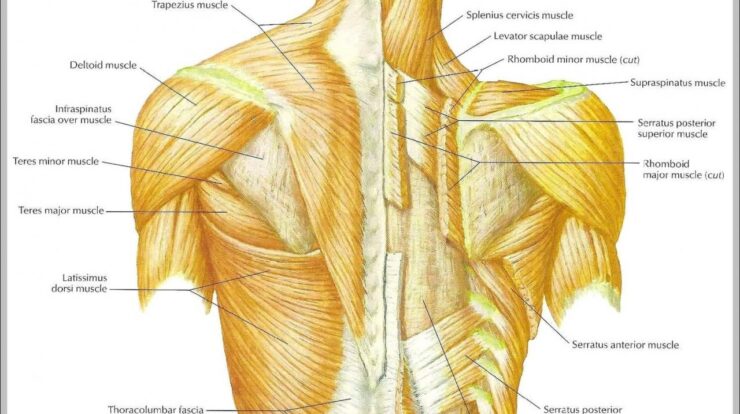
How to cure gum disease without a dentist – Gum disease is a common problem that can lead to serious health issues if left untreated. While visiting a dentist is the most effective way to treat gum disease, there are some things you can do at home to help improve your oral health and reduce your risk of developing gum disease.
In this article, we’ll discuss how to cure gum disease without a dentist, including home remedies, oral hygiene practices, dietary modifications, alternative therapies, and prevention and early detection tips.
Home Remedies

In addition to professional dental treatments, several natural remedies may provide relief from gum disease. While they cannot replace proper dental care, these remedies can complement professional treatment and promote oral health.
The effectiveness of home remedies for gum disease varies depending on the individual and the severity of the condition. Some remedies may provide temporary relief from symptoms, while others may have long-term benefits.
Salt Water Rinse
- Mix 1/2 teaspoon of salt in 8 ounces of warm water.
- Rinse your mouth with the solution for 30 seconds.
- Repeat 2-3 times daily.
Salt water rinses can help reduce inflammation and kill bacteria in the mouth. They are a simple and effective way to improve oral hygiene.
There are a few things you can do to cure gum disease without a dentist. First, you can try using a saltwater rinse. This will help to reduce inflammation and kill bacteria. You can also try using a baking soda paste.
This will help to neutralize the acids that cause gum disease. If these methods don’t work, you may need to see a dentist. They can prescribe antibiotics or other medications to help cure gum disease. For more information on how to cure gum disease without a dentist, click here .
Hydrogen Peroxide Rinse
- Mix 1 tablespoon of 3% hydrogen peroxide in 8 ounces of water.
- Rinse your mouth with the solution for 30 seconds.
- Do not swallow the solution.
- Repeat 1-2 times daily.
Hydrogen peroxide is a natural antiseptic that can help kill bacteria and reduce inflammation. It is important to dilute hydrogen peroxide before using it, as it can be irritating to the mouth.
Turmeric Rinse, How to cure gum disease without a dentist
- Mix 1 teaspoon of turmeric powder in 8 ounces of warm water.
- Rinse your mouth with the solution for 30 seconds.
- Repeat 2-3 times daily.
Turmeric contains curcumin, a compound with anti-inflammatory and antibacterial properties. It can help reduce pain and swelling in the gums.
Oral Hygiene Practices: How To Cure Gum Disease Without A Dentist
Maintaining good oral hygiene is crucial for preventing and treating gum disease. Proper brushing and flossing techniques, along with the use of mouthwash and other oral hygiene products, help remove plaque and bacteria that cause gum inflammation and infection.
Maintaining a healthy oral microbiome, the balance of good and bad bacteria in the mouth, is also essential for gum health. Disruptions in the oral microbiome can lead to an overgrowth of harmful bacteria, increasing the risk of gum disease.
Gum disease is a common problem that can lead to serious health issues if left untreated. While it’s best to see a dentist for professional treatment, there are some things you can do at home to help cure gum disease.
Click here for a guide on how to cure gum disease without a dentist. These methods can help reduce inflammation, kill bacteria, and promote healing. If you’re experiencing gum disease, it’s important to take action to prevent further damage.
Brushing and Flossing
Brush your teeth twice a day with a soft-bristled toothbrush and fluoride toothpaste. Angle the toothbrush at a 45-degree angle towards the gum line and use gentle circular motions to remove plaque and bacteria. Floss daily to remove plaque and food particles from between the teeth, where your toothbrush can’t reach.
Mouthwash and Other Oral Hygiene Products
Mouthwash can help reduce plaque and bacteria, freshen breath, and prevent cavities. Choose a mouthwash that contains fluoride or chlorhexidine, an antibacterial agent. Other oral hygiene products like tongue scrapers and interdental brushes can help remove bacteria and plaque from hard-to-reach areas.
Maintaining a Healthy Oral Microbiome
To maintain a healthy oral microbiome, avoid sugary foods and drinks, which feed harmful bacteria. Eat a balanced diet rich in fruits, vegetables, and whole grains to support the growth of beneficial bacteria. Probiotics, found in fermented foods like yogurt and sauerkraut, can also help promote a healthy oral microbiome.
Dietary Modifications

Dietary habits significantly impact oral health and gum disease development. Certain foods and beverages promote plaque formation, contributing to gum inflammation and disease progression. Conversely, a balanced diet rich in specific nutrients can enhance gum health.
Foods to Avoid
- Sugary foods and drinks:Bacteria feed on sugars, producing acids that erode tooth enamel and promote plaque buildup.
- Sticky foods:Candies, dried fruits, and gummy snacks adhere to teeth, providing a constant source of nourishment for bacteria.
- Acidic foods and drinks:Citrus fruits, sodas, and sports drinks contain acids that weaken tooth enamel, making teeth more susceptible to plaque accumulation.
- Processed foods:Often high in unhealthy fats, refined carbohydrates, and added sugars, which contribute to inflammation throughout the body, including the gums.
Foods to Include
- Fruits and vegetables:Rich in vitamins, minerals, and antioxidants, which support overall health and reduce inflammation.
- Lean protein:Meat, poultry, fish, and beans provide amino acids necessary for tissue repair and maintenance.
- Dairy products:Contain calcium and vitamin D, essential for strong teeth and bones.
- Whole grains:Rich in fiber, which helps remove plaque and bacteria from teeth.
- Green tea:Contains polyphenols with antioxidant and anti-inflammatory properties that benefit gum health.
Alternative Therapies
In addition to conventional treatments, several alternative therapies may offer complementary benefits for gum disease. While scientific evidence supporting their effectiveness varies, some studies suggest potential advantages.
Oil Pulling
Oil pulling involves swishing oil, typically coconut or sesame oil, in the mouth for 10-15 minutes. Proponents claim it helps remove bacteria and toxins, reducing inflammation and improving gum health. However, limited scientific research exists to support these claims.
Acupuncture
Acupuncture, a traditional Chinese medicine technique, involves inserting thin needles into specific points on the body. Some practitioners believe it can stimulate the body’s natural healing response and reduce inflammation in the gums.
Gum disease is a common problem that can lead to serious health issues if left untreated. While it’s always best to see a dentist for professional treatment, there are some things you can do at home to help cure gum disease.
Click here for a comprehensive guide on how to cure gum disease without a dentist, including natural remedies, over-the-counter treatments, and lifestyle changes that can help improve your oral health.
Prevention and Early Detection

Regular dental checkups and professional cleanings are crucial for preventing and detecting gum disease early on. These appointments allow dentists to remove plaque and tartar buildup, which can lead to gum inflammation and infection. Additionally, dentists can identify early signs of gum disease, such as redness, swelling, and bleeding, and provide appropriate treatment to prevent further progression.
Self-Monitoring
Self-monitoring for gum disease is essential for early detection. Look for the following signs and symptoms:
- Red, swollen, or bleeding gums
- Receding gums
- Loose teeth
- Pus between teeth and gums
- Persistent bad breath
If you notice any of these symptoms, consult a dentist promptly for professional evaluation and treatment.
End of Discussion

By following the tips in this article, you can help improve your oral health and reduce your risk of developing gum disease. However, it’s important to remember that these tips are not a substitute for regular dental checkups and professional cleanings.
If you have any concerns about your oral health, be sure to see your dentist as soon as possible.
Key Questions Answered
Can I cure gum disease without going to the dentist?
Yes, you can improve your oral health and reduce your risk of developing gum disease by following the tips in this article. However, it’s important to remember that these tips are not a substitute for regular dental checkups and professional cleanings.
What are some home remedies for gum disease?
There are a number of natural remedies that can help improve your oral health and reduce your risk of developing gum disease. Some of the most effective home remedies include:
- Oil pulling
- Salt water rinse
- Tea tree oil
- Green tea
- Aloe vera
What are some oral hygiene practices that can help prevent gum disease?
Proper oral hygiene is essential for preventing gum disease. Some of the most important oral hygiene practices include:
- Brushing your teeth twice a day with a fluoride toothpaste
- Flossing your teeth once a day
- Using a mouthwash
- Seeing your dentist for regular checkups and cleanings
What are some dietary modifications that can help prevent gum disease?
Eating a healthy diet is important for overall health, including oral health. Some of the foods that are beneficial for gum health include:
- Fruits and vegetables
- Whole grains
- Lean protein
- Dairy products
What are some alternative therapies that can help treat gum disease?
There are a number of alternative therapies that may help treat gum disease. Some of the most promising alternative therapies include:
- Oil pulling
- Acupuncture
- Herbal remedies
- Homeopathy





